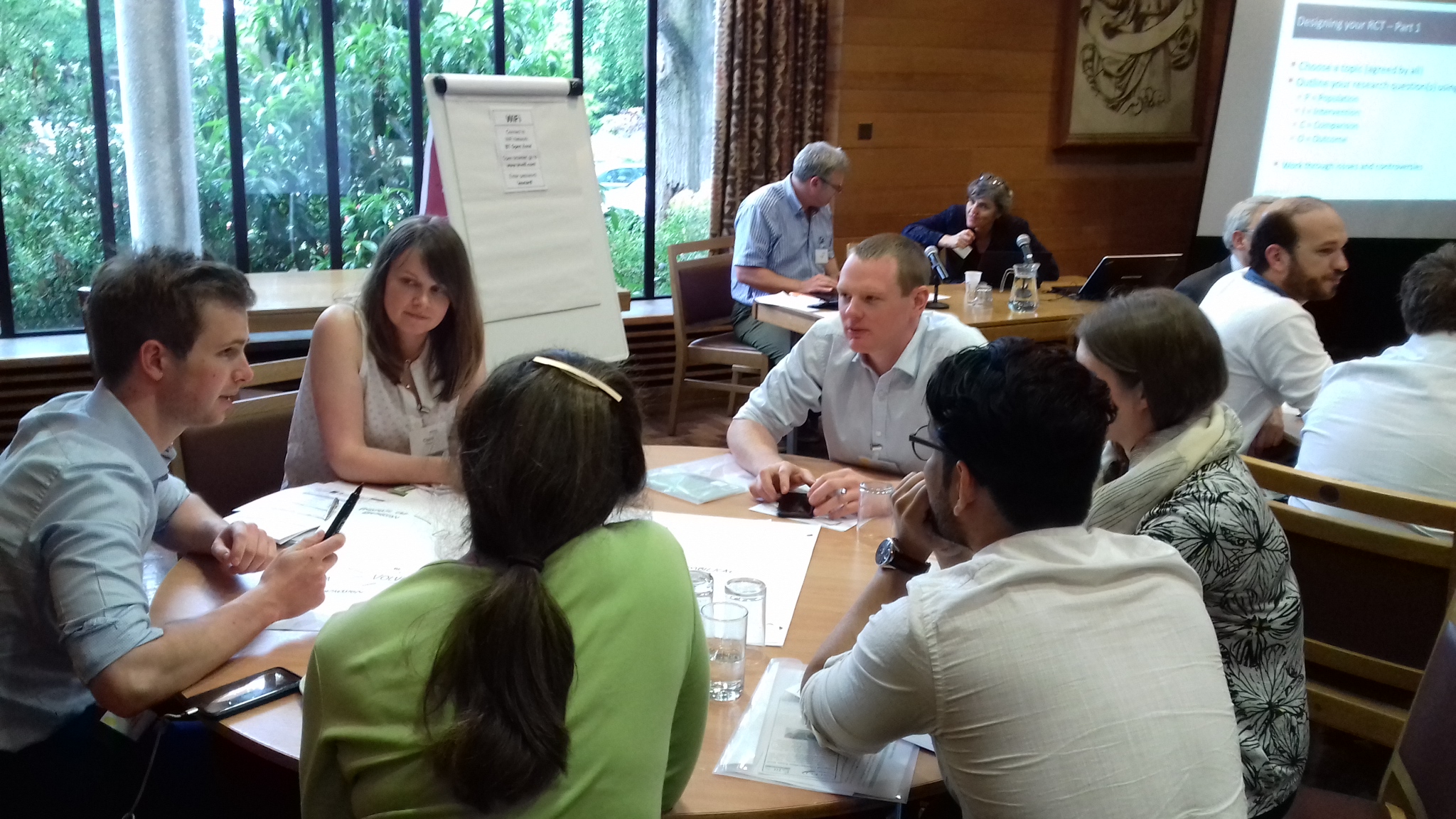BOSTiC 2017: Summary
The 3rd annual Bristol Oxford Surgical Trials Course (BOSTiC) was rotated back to Oxford this year and held in May 2017 at Wolfson College, University of Oxford. The course is aimed at surgical trainees interested in clinical research and has been developed to guide the design and conduct of randomised control trials (RCTs). The course is taught by a multi-disciplinary team from both the Bristol and Oxford Surgical Trials Units which are sponsored by Royal College of Surgeons of England. This year, the course was attended by surgical trainees from a wide variety of specialities across the UK, and also featured our first European participants (from Italy).
As usual the course was residential and ran over three days. It utilises a variety of teaching methods to maintain engagement and audience involvement. The ethos of the course is interactive involvement and participation. The faculty uphold that “no question is a bad question”. There is also strong facilitation of mixing between students, especially between different surgical disciplines. This helps in sharing ideas and experience.
Content from Day one included talks and sessions from hosts Professors Jane Blazeby, Professor David Beard, supported by Dr Veeru Kasivisvanathan and Dr Ines Rombach on developing a research question, running a trial as a trainee, and bias and generalisability. A set of short vignettes were also presented by a variety of staff from the two STU’s, covering topics such as the importance of having public and patient involvement during the setup of an RCT, the evaluation of current practice, how to obtain funding for a study, and the IDEAL Framework.
The morning sessions on Day two continued to build on the previous day, and featured talks on alternative trial designs, the key challenges and methods for successfully recruiting into RCTs and surgeon-patient scenarios by Professor Jonathan Cook, Dr Leila Rooshenas and Dr Marcus Jepson. Pilot and feasibilities and outcome measures were also covered.
On the final day, Professor Chris Rogers summarised key statistical concepts and provided the opportunity for delegates to calculate power and sample sizes for a study. BOSTIC aims to expose the delegates to experienced clinicians and triallists who can offer insight and knowledge into surgical trials and Professor James Wright, as keynote, gave an enlightening and lively talk relating to the challenges faced in running a trial in the paediatric population. Co-host Professor Cook then covered reporting and the CONSORT statement. The course ended with dragons den style presentations with each group presenting their designed RCT worked up throughout the course. Experienced Mentors from both Universities helped guide delegates through this process throughout the course.
Feedback from this year’s course has, once again, been extremely positive. 100% of the participants have rated the teaching quality as Excellent or Good and all of them said they would recommend the course to a colleague. Subsequent to attendance of representatives from the RCS (Stephen Court, Quality Assurance and Accreditation Manager; Mr Tim Goodacre, FRCS and BAPRAS representative on RCS Eng Council; and James Masters from Nuffiled Department of Orthopaedics, Rheumatology and Musculoskeletal Sciences, University of Oxford), the RCS have also accredited the course for this year and the subsequent two years. Next year’s course is in the West – Bristol – get signed up now.
Below are some quotes from the surgical trainees that attended the course:
“The course was truly excellent namely due to an expert faculty. Debates on certain topics were interesting and useful.”
“I’d love to come back next year please.”
“Perhaps best value course to date.”

The course was truly excellent namely due to an expert faculty. Debates on certain topics were interesting and useful.